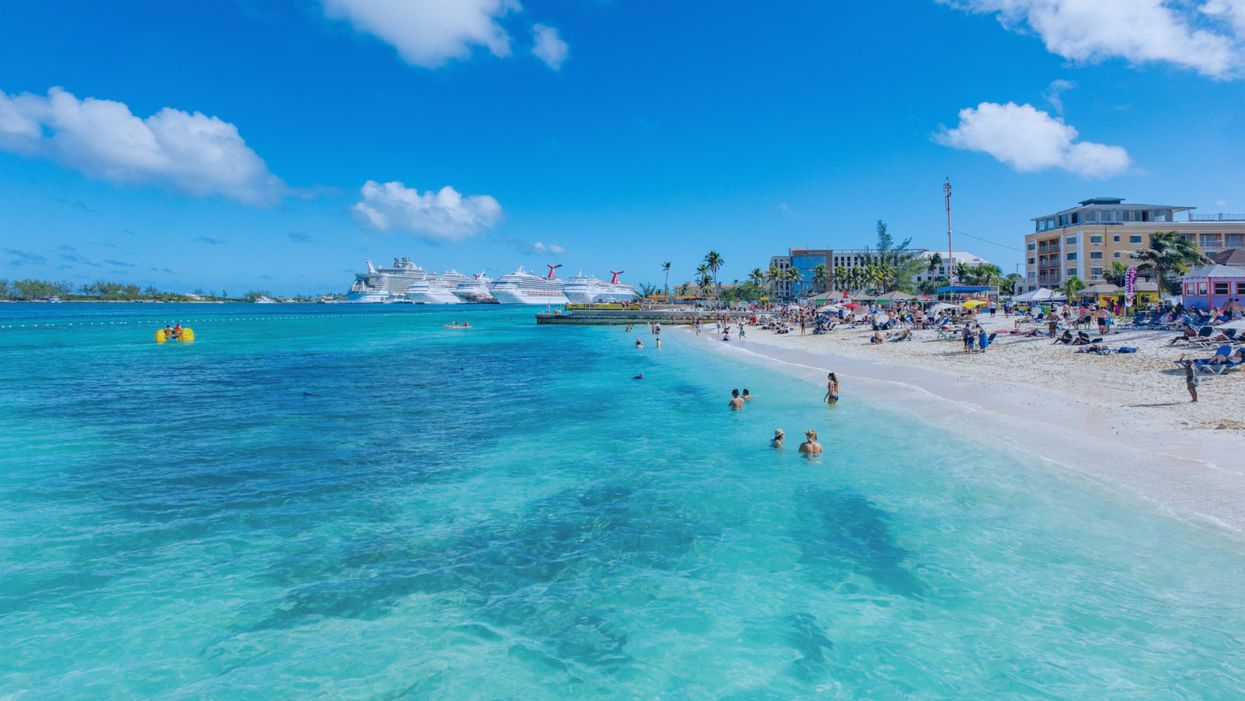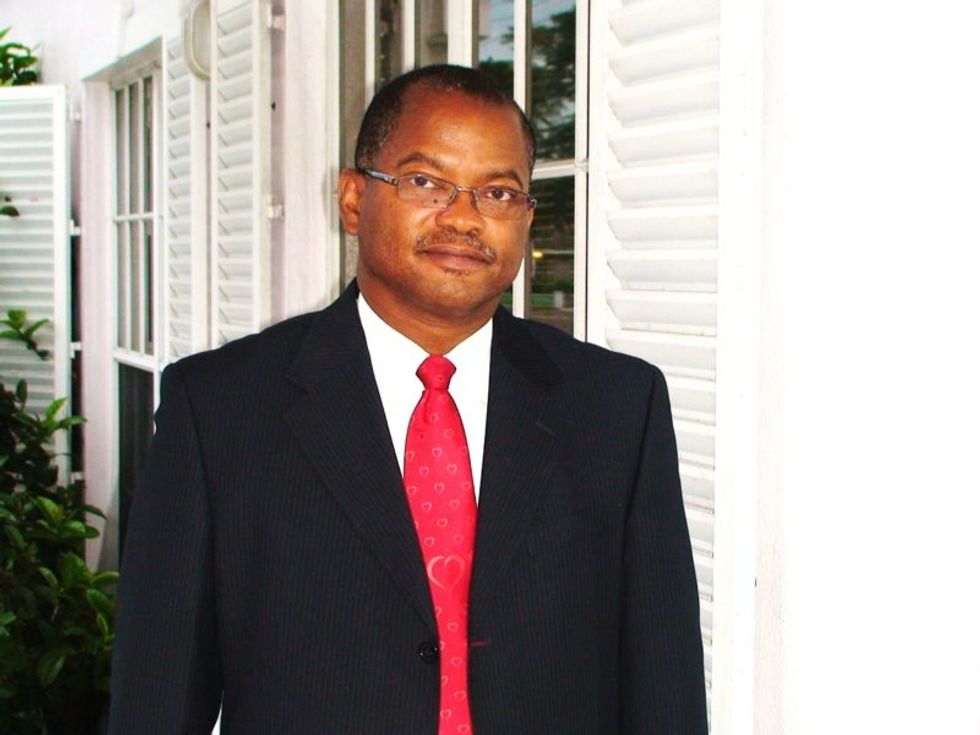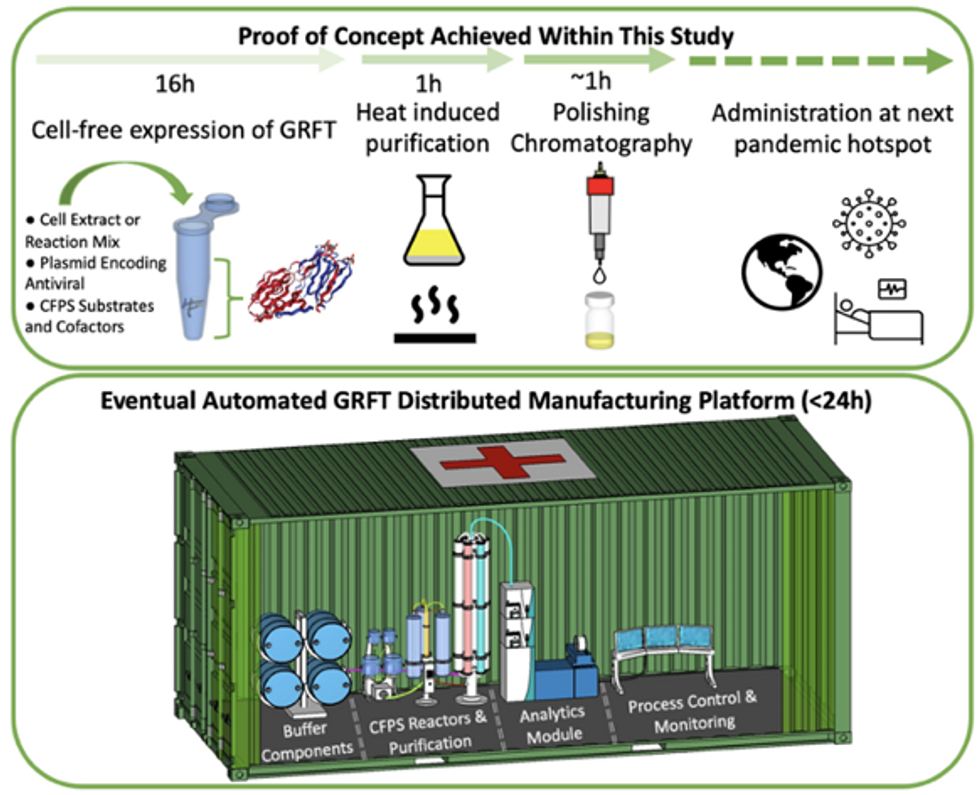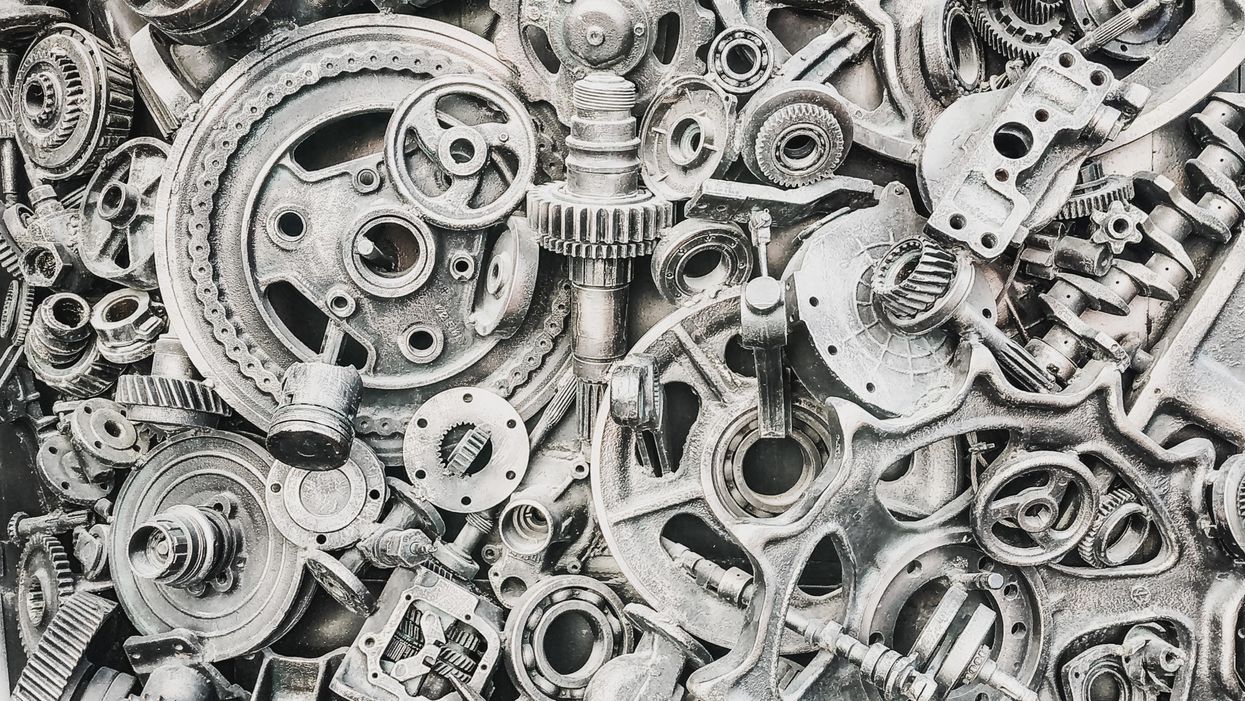Why Are Scientists and Patients Visiting This Island Paradise?
Kira Peikoff was the editor-in-chief of Leaps.org from 2017 to 2021. As a journalist, her work has appeared in The New York Times, Newsweek, Nautilus, Popular Mechanics, The New York Academy of Sciences, and other outlets. She is also the author of four suspense novels that explore controversial issues arising from scientific innovation: Living Proof, No Time to Die, Die Again Tomorrow, and Mother Knows Best. Peikoff holds a B.A. in Journalism from New York University and an M.S. in Bioethics from Columbia University. She lives in New Jersey with her husband and two young sons. Follow her on Twitter @KiraPeikoff.

An inviting beach in Nassau, Bahamas.
Dr. Conville Brown, a cardiologist-researcher in The Bahamas, is at the helm of a fascinating worldwide project: He's leading a movement to help accelerate innovation by providing scientists and patients from around the globe with a legal, cost-effective, and ethically rigorous place to conduct medical research, as well as to offer commercial therapies that are already approved in some jurisdictions, but not others. He recently spoke with Editor-In-Chief Kira Peikoff about The Bahamas' emerging ascendance in the scientific world. This interview has been edited and condensed for brevity.
"You don't want to take shortcuts from the perspective of not giving proper due diligence to the process, but you also don't want it to be overwhelmed with red tape."
Tell me about the work you do in the Bahamas – what is the research focus?
We have a couple research opportunities here. Several years ago, we established the Partners Clinical Research Centre, the idea being that we can partner with different people in different territories in the world, including the United States, and be able to perform ethical research as would be defined and adjudicated by an institutional review board and a properly constituted ethics committee. We do all of this with FDA rigor, but in a non-FDA jurisdiction.
By doing this, we want to look for the science behind the research, and want to know that there is a sound clinical hypothesis that's going to be tested. We also want to know that the safety of the human subjects is assured as much as possible, and of course, assess the efficacy of that which you're testing. We want to do this in the same manner as the FDA, except in a more accelerated and probably less bureaucratic manner. You don't want to take shortcuts from the perspective of not giving proper due diligence to the process, but you also don't want it to be overwhelmed with red tape, so that what could be 3 months takes 3 years. A jet ski turns around a lot faster than the Queen Mary.
Why do you think the clinical research process in other countries like the U.S. has become burdened with red tape?
The litigious nature of society is a contributing factor. If people are negligent, they deserve to be sued. Unfortunately, all too often, some things get taken too far, and sometimes, the pendulum swings too far in the wrong direction and then it's counterproductive, so the whole process then becomes so very heavily regulated and financially burdensome. A lot of American companies have gone outside the country to get their clinical trials and/or device testing done because it's too phenomenally expensive and time-consuming. We seek to make sure the same degree of diligence is exercised but in a lesser time frame, and of course, at a much lower cost.
The other aspect, of course, is that there are certain opportunities where we have major jurisdictions, as in Europe, that have determined that a therapy or device is safe. Those services and devices we can utilize in the Bahamas--not as a clinical research tool, but as a therapy, which of course, the United States is not able to do without FDA approval. That could easily take another five years. So there is an opportunity for us in that window to make available such therapies and devices to the North American community. I like to call this "Advanced Medical Tourism" or "Advanced TransNational Medical Care." Instead of somebody flying nine hours to Europe, they can also now fly to the Bahamas, as little as half an hour away, and as long as we are satisfied that the science is sound and the approvals are in place from a senior jurisdiction, then we can legally serve any patient that is eligible for that particular therapy.

Dr. Conville Brown
(Courtesy)
Are you seeing an influx of patients for that kind of medical tourism?
The numbers are increasing. The stem cell legislation has now been in place for two to three years, so we have a number of entities including some large international companies coming to the shores of the Bahamas to provide some therapies here, and others for research. The vast majority of our clientele are from abroad, particularly the U.S. We fully plan to increase the traffic flow to the Bahamas for medical tourism, or preferably, TransNational Medical Care, Advanced and Conventional.
How do patients find out about available therapies and trials happening there?
Advertising in the international arena for something that is perfectly legal within the confines of Bahamas is par for the course. But the marketing efforts have not been that heavy while all the processes and procedures are being fine-tuned and the various entities are set up to handle more than 100 people at a time.
"We were able to accelerate those programs, and do it a lot less expensively than can be done in continental countries, but just as well."
What kind of research is being done by companies who have come to the Bahamas?
We've been involved in first-in-man procedures for neuromodulation of the cardiovascular system, where we inserted a device into the blood vessels and stimulated the autonomic nervous system with a view to controlling patients' blood pressure and heart rate in conditions such as congestive heart failure. We have also looked at injectable glucose sensors, to continually monitor the blood glucose, and via a chip, can send the blood glucose measurement back to the patient's cell phone. So the patient looks at his phone for his blood sugar. That was phenomenally exciting, the clinical trial was very positive, and the company is now developing a final prototype to commercialize the product. We were able to accelerate those programs, and do it a lot less expensively than can be done in continental countries, but just as well. The Bahamas has also crafted legislation specifically for regenerative medicine and stem cell research, so that becomes an additional major attraction.
Do you ever find that there is skepticism around going to the Caribbean to do science?
When it comes to clinical research and new medical devices, one might be skeptical about the level of medical/scientific expertise that is resident here. We're here to show that we do in fact have that expertise resident within The Partners Clinical Research Centre, within The Partners Stem Cell Centre, and we have formed our partnerships accordingly so that when prudent and necessary, we bring in additional expertise from the very territories that are seeking to accelerate.
Have you seen a trend toward increasing interest from researchers around the world?
Absolutely. One company, for example, is interested not only in the clinical side, but also the preclinical side--where you can have animal lab experiments done in the Bahamas, and being able to bridge that more readily with the clinical side. That presents a major opportunity for parties involved because again, the financial savings are exponential without compromising standards.
"A person who is 75 and frail, he doesn't want to wait to see if he will make it to 80 to benefit from the agent if it's approved in five years. Instead he can come to our center."
Where are some of these researchers from?
The United States, the Czech Republic, Russia, Canada, and South America. I expect significantly more interest once we promote the idea of European products having a welcome niche in the Bahamas, because we accept federal approvals from the U.S., Canada, and the European Union.
What do you think will be the first medical breakthrough to come out of research there?
One of the biggest killers in the world is heart disease, and we have the opportunity to implement a number of cardiac protocols utilizing stem cell therapy, particularly for those with no options. We just completed a state-of-the art medical center that we fashioned after the University of Miami that is getting ready for prime time. The sky will be the limit for the cardiac patient with respect to stem cell medicine.
Second, we are extremely pleased to be involved with a company called Longeveron, which is looking at how one might age better, and age more slowly, particularly with the administration of young blood and mesenchymal stem cells to frail, elderly candidates. Healthy young men have their mesenchymal stem cells harvested, expanded, and then administered to frail, elderly individuals with a view to improving their Frailty Index and functionality (feeling younger). There is a lot of interest in this arena, as one could imagine.
And herein lies the classical scenario for the Bahamas: Longeveron is now recruiting patients for its phase IIB double blind, placebo-controlled clinical trial at multiple sites across the U.S., which will add some two to three years to its data collection. Originally this work was done with NIH support at the University of Miami's Interdisciplinary Stem Cell Institute by Dr. Joshua Hare, and published in the Journal of Gerontology. So now, during the ongoing and expanded clinical trial, with those positive signals, we are able to have a commercially available clinical registry in the Bahamas. This has been approved by the ethics committee here, which is comprised of international luminaries in regenerative medicine. Longeveron will also be conducting an additional randomized clinical trial arm of same at our Centre in The Bahamas, The Partners Stem Cell Centre.
Can you clarify what you mean by "registry"?
In other words, you still have to fit the eligibility criteria to receive the active agent, but the difference is that in a placebo-controlled double-blind clinical trial, the physician/researcher and the patient don't know if they are getting the active agent or placebo. In the registry, there is no placebo, and you know you're getting the active agent, what we call "open label." You're participating because of the previous information on efficacy and safety.
A person who is 75 and frail, he doesn't want to wait to see if he will make it to 80 to benefit from the agent if it's approved in five years. Instead he can come to our center, one of the designated centers, and as long as he meets the inclusion criteria, may participate in said registry. The additional data from our patients can bolster the numbers in the clinical trial, which can contribute to the FDA approval process. One can see how this could accelerate the process of discovery and acceptance, as well as prove if the agent was not as good as it was made out to be. It goes both ways.
"We would love to be known as a place that facilitates the acceleration of ethical science and ethical therapies, and therefore brings global relief to those in need."
Do you think one day the Bahamas will be more well-known for its science than its beaches?
I doubt that. What I would like to say is that the Bahamas would love to always be known for its beautiful beaches, but we would also like to be known for diversity and innovation. Apart from all that beauty, we can still play a welcoming role to the rest of the scientific world. We would love to be known as a place that facilitates the acceleration of ethical science and ethical therapies, and therefore brings global relief to those in need.
Kira Peikoff was the editor-in-chief of Leaps.org from 2017 to 2021. As a journalist, her work has appeared in The New York Times, Newsweek, Nautilus, Popular Mechanics, The New York Academy of Sciences, and other outlets. She is also the author of four suspense novels that explore controversial issues arising from scientific innovation: Living Proof, No Time to Die, Die Again Tomorrow, and Mother Knows Best. Peikoff holds a B.A. in Journalism from New York University and an M.S. in Bioethics from Columbia University. She lives in New Jersey with her husband and two young sons. Follow her on Twitter @KiraPeikoff.
Scientists are making machines, wearable and implantable, to act as kidneys
Recent advancements in engineering mean that the first preclinical trials for an artificial kidney could happen soon.
Like all those whose kidneys have failed, Scott Burton’s life revolves around dialysis. For nearly two decades, Burton has been hooked up (or, since 2020, has hooked himself up at home) to a dialysis machine that performs the job his kidneys normally would. The process is arduous, time-consuming, and expensive. Except for a brief window before his body rejected a kidney transplant, Burton has depended on machines to take the place of his kidneys since he was 12-years-old. His whole life, the 39-year-old says, revolves around dialysis.
“Whenever I try to plan anything, I also have to plan my dialysis,” says Burton says, who works as a freelance videographer and editor. “It’s a full-time job in itself.”
Many of those on dialysis are in line for a kidney transplant that would allow them to trade thrice-weekly dialysis and strict dietary limits for a lifetime of immunosuppressants. Burton’s previous transplant means that his body will likely reject another donated kidney unless it matches perfectly—something he’s not counting on. It’s why he’s enthusiastic about the development of artificial kidneys, small wearable or implantable devices that would do the job of a healthy kidney while giving users like Burton more flexibility for traveling, working, and more.
Still, the devices aren’t ready for testing in humans—yet. But recent advancements in engineering mean that the first preclinical trials for an artificial kidney could happen soon, according to Jonathan Himmelfarb, a nephrologist at the University of Washington.
“It would liberate people with kidney failure,” Himmelfarb says.
An engineering marvel
Compared to the heart or the brain, the kidney doesn’t get as much respect from the medical profession, but its job is far more complex. “It does hundreds of different things,” says UCLA’s Ira Kurtz.
Kurtz would know. He’s worked as a nephrologist for 37 years, devoting his career to helping those with kidney disease. While his colleagues in cardiology and endocrinology have seen major advances in the development of artificial hearts and insulin pumps, little has changed for patients on hemodialysis. The machines remain bulky and require large volumes of a liquid called dialysate to remove toxins from a patient’s blood, along with gallons of purified water. A kidney transplant is the next best thing to someone’s own, functioning organ, but with over 600,000 Americans on dialysis and only about 100,000 kidney transplants each year, most of those in kidney failure are stuck on dialysis.
Part of the lack of progress in artificial kidney design is the sheer complexity of the kidney’s job. Each of the 45 different cell types in the kidney do something different.
Part of the lack of progress in artificial kidney design is the sheer complexity of the kidney’s job. To build an artificial heart, Kurtz says, you basically need to engineer a pump. An artificial pancreas needs to balance blood sugar levels with insulin secretion. While neither of these tasks is simple, they are fairly straightforward. The kidney, on the other hand, does more than get rid of waste products like urea and other toxins. Each of the 45 different cell types in the kidney do something different, helping to regulate electrolytes like sodium, potassium, and phosphorous; maintaining blood pressure and water balance; guiding the body’s hormonal and inflammatory responses; and aiding in the formation of red blood cells.

There's been little progress for patients during Ira Kurtz's 37 years as a nephrologist. Artificial kidneys would change that.
UCLA
Dialysis primarily filters waste, and does so well enough to keep someone alive, but it isn’t a true artificial kidney because it doesn’t perform the kidney’s other jobs, according to Kurtz, such as sensing levels of toxins, wastes, and electrolytes in the blood. Due to the size and water requirements of existing dialysis machines, the equipment isn’t portable. Physicians write a prescription for a certain duration of dialysis and assess how well it’s working with semi-regular blood tests. The process of dialysis itself, however, is conducted blind. Doctors can’t tell how much dialysis a patient needs based on kidney values at the time of treatment, says Meera Harhay, a nephrologist at Drexel University in Philadelphia.
But it’s the impact of dialysis on their day-to-day lives that creates the most problems for patients. Only one-quarter of those on dialysis are able to remain employed (compared to 85% of similar-aged adults), and many report a low quality of life. Having more flexibility in life would make a major different to her patients, Harhay says.
“Almost half their week is taken up by the burden of their treatment. It really eats away at their freedom and their ability to do things that add value to their life,” she says.
Art imitates life
The challenge for artificial kidney designers was how to compress the kidney’s natural functions into a portable, wearable, or implantable device that wouldn’t need constant access to gallons of purified and sterilized water. The other universal challenge they faced was ensuring that any part of the artificial kidney that would come in contact with blood was kept germ-free to prevent infection.
As part of the 2021 KidneyX Prize, a partnership between the U.S. Department of Health and Human Services and the American Society of Nephrology, inventors were challenged to create prototypes for artificial kidneys. Himmelfarb’s team at the University of Washington’s Center for Dialysis Innovation won the prize by focusing on miniaturizing existing technologies to create a portable dialysis machine. The backpack sized AKTIV device (Ambulatory Kidney to Increase Vitality) will recycle dialysate in a closed loop system that removes urea from blood and uses light-based chemical reactions to convert the urea to nitrogen and carbon dioxide, which allows the dialysate to be recirculated.
Himmelfarb says that the AKTIV can be used when at home, work, or traveling, which will give users more flexibility and freedom. “If you had a 30-pound device that you could put in the overhead bins when traveling, you could go visit your grandkids,” he says.
Kurtz’s team at UCLA partnered with the U.S. Kidney Research Corporation and Arkansas University to develop a dialysate-free desktop device (about the size of a small printer) as the first phase of a progression that will he hopes will lead to something small and implantable. Part of the reason for the artificial kidney’s size, Kurtz says, is the number of functions his team are cramming into it. Not only will it filter urea from blood, but it will also use electricity to help regulate electrolyte levels in a process called electrodeionization. Kurtz emphasizes that these additional functions are what makes his design a true artificial kidney instead of just a small dialysis machine.

One version of an artificial kidney.
UCLA
“It doesn't have just a static function. It has a bank of sensors that measure chemicals in the blood and feeds that information back to the device,” Kurtz says.
Other startups are getting in on the game. Nephria Bio, a spinout from the South Korean-based EOFlow, is working to develop a wearable dialysis device, akin to an insulin pump, that uses miniature cartridges with nanomaterial filters to clean blood (Harhay is a scientific advisor to Nephria). Ian Welsford, Nephria’s co-founder and CTO, says that the device’s design means that it can also be used to treat acute kidney injuries in resource-limited settings. These potentials have garnered interest and investment in artificial kidneys from the U.S. Department of Defense.
For his part, Burton is most interested in an implantable device, as that would give him the most freedom. Even having a regular outpatient procedure to change batteries or filters would be a minor inconvenience to him.
“Being plugged into a machine, that’s not mimicking life,” he says.
This article was first published by Leaps.org on May 5, 2022.
With this new technology, hospitals and pharmacies could make vaccines and medicines onsite
New research focuses on methods that could change medicine-making worldwide. The scientists propose bursting cells open, removing their DNA and using the cellular gears inside to make therapies.
Most modern biopharmaceutical medicines are produced by workhorse cells—typically bacterial but sometimes mammalian. The cells receive the synthesizing instructions on a snippet of a genetic code, which they incorporate into their DNA. The cellular machinery—ribosomes, RNAs, polymerases, and other compounds—read and use these instructions to build the medicinal molecules, which are harvested and administered to patients.
Although a staple of modern pharma, this process is complex and expensive. One must first insert the DNA instructions into the cells, which they may or may not uptake. One then must grow the cells, keeping them alive and well, so that they produce the required therapeutics, which then must be isolated and purified. To make this at scale requires massive bioreactors and big factories from where the drugs are distributed—and may take a while to arrive where they’re needed. “The pandemic showed us that this method is slow and cumbersome,” says Govind Rao, professor of biochemical engineering who directs the Center for Advanced Sensor Technology at the University of Maryland, Baltimore County (UMBC). “We need better methods that can work faster and can work locally where an outbreak is happening.”
Rao and his team of collaborators, which spans multiple research institutions, believe they have a better approach that may change medicine-making worldwide. They suggest forgoing the concept of using living cells as medicine-producers. Instead, they propose breaking the cells and using the remaining cellular gears for assembling the therapeutic compounds. Instead of inserting the DNA into living cells, the team burst them open, and removed their DNA altogether. Yet, the residual molecular machinery of ribosomes, polymerases and other cogwheels still functioned the way it would in a cell. “Now if you drop your DNA drug-making instructions into that soup, this machinery starts making what you need,” Rao explains. “And because you're no longer worrying about living cells, it becomes much simpler and more efficient.” The collaborators detail their cell-free protein synthesis or CFPS method in their recent paper published in preprint BioAxiv.
While CFPS does not use living cells, it still needs the basic building blocks to assemble proteins from—such as amino acids, nucleotides and certain types of enzymes. These are regularly added into this “soup” to keep the molecular factory chugging. “We just mix everything in as a batch and we let it integrate,” says James Robert Swartz, professor of chemical engineering and bioengineering at Stanford University and co-author of the paper. “And we make sure that we provide enough oxygen.” Rao likens the process to making milk from milk powder.
For a variety of reasons—from the field’s general inertia to regulatory approval hurdles—the method hasn’t become mainstream. The pandemic rekindled interest in medicines that can be made quickly and easily, so it drew more attention to the technology.
The idea of a cell-free protein synthesis is older than one might think. Swartz first experimented with it around 1997, when he was a chemical engineer at Genentech. While working on engineering bacteria to make pharmaceuticals, he discovered that there was a limit to what E. coli cells, the workhorse darling of pharma, could do. For example, it couldn’t grow and properly fold some complex proteins. “We tried many genetic engineering approaches, many fermentation, development, and environmental control approaches,” Swartz recalls—to no avail.
“The organism had its own agenda,” he quips. “And because everything was happening within the organism, we just couldn't really change those conditions very easily. Some of them we couldn’t change at all—we didn’t have control.”
It was out of frustration with the defiant bacteria that a new idea took hold. Could the cells be opened instead, so that the protein-forming reactions could be influenced more easily? “Obviously, we’d lose the ability for them to reproduce,” Swartz says. But that also meant that they no longer needed to keep the cells alive and could focus on making the specific reactions happen. “We could take the catalysts, the enzymes, and the more complex catalysts and activate them, make them work together, much as they would in a living cell, but the way we wanted.”
In 1998, Swartz joined Stanford, and began perfecting the biochemistry of the cell-free method, identifying the reactions he wanted to foster and stopping those he didn’t want. He managed to make the idea work, but for a variety of reasons—from the field’s general inertia to regulatory approval hurdles—the method hasn’t become mainstream. The pandemic rekindled interest in medicines that can be made quickly and easily, so it drew more attention to the technology. For their BioArxiv paper, the team tested the method by growing a specific antiviral protein called griffithsin.
First identified by Barry O’Keefe at National Cancer Institute over a decade ago, griffithsin is an antiviral known to interfere with many viruses’ ability to enter cells—including HIV, SARS, SARS-CoV-2, MERS and others. Originally isolated from the red algae Griffithsia, it works differently from antibodies and antibody cocktails.
Most antiviral medicines tend to target the specific receptors that viruses use to gain entry to the cells they infect. For example, SARS-CoV-2 uses the infamous spike protein to latch onto the ACE2 receptor of mammalian cells. The antibodies or other antiviral molecules stick to the spike protein, shutting off its ability to cling onto the ACE2 receptors. Unfortunately, the spike proteins mutate very often, so the medicines lose their potency. On the contrary, griffithsin has the ability to cling to the different parts of viral shells called capsids—namely to the molecules of mannose, a type of sugar. That extra stuff, glued all around the capsid like dead weight, makes it impossible for the virus to squeeze into the cell.
“Every time we have a vaccine or an antibody against a specific SARS-CoV-2 strain, that strain then mutates and so you lose efficacy,” Rao explains. “But griffithsin molecules glom onto the viral capsid, so the capsid essentially becomes a sticky mess and can’t enter the cell.” Mannose molecules also don’t mutate as easily as viruses’ receptors, so griffithsin-based antivirals do not have to be constantly updated. And because mannose molecules are found on many viruses’ capsids, it makes griffithsin “a universal neutralizer,” Rao explains.
“When griffithsin was discovered, we recognized that it held a lot of promise as a potential antiviral agent,” O’Keefe says. In 2010, he published a paper about griffithsin efficacy in neutralizing viruses of the corona family—after the first SARS outbreak in the early 2000s, the scientific community was interested in such antivirals. Yet, griffithsin is still not available as an off-the-shelf product. So during the Covid pandemic, the team experimented with synthesizing griffithsin using the cell-free production method. They were able to generate potent griffithsin in less than 24 hours without having to grow living cells.
The antiviral protein isn't the only type of medicine that can be made cell-free. The proteins needed for vaccine production could also be made the same way. “Such portable, on-demand drug manufacturing platforms can produce antiviral proteins within hours, making them ideal for combating future pandemics,” Rao says. “We would be able to stop the pandemic before it spreads.”

Top: Describes the process used in the study. Bottom: Describes how the new medicines and vaccines could be made at the site of a future viral outbreak.
Image courtesy of Rao and team, sourced from An approach to rapid distributed manufacturing of broad spectrumanti-viral griffithsin using cell-free systems to mitigate pandemics.
Rao’s idea is to perfect the technology to the point that any hospital or pharmacy can load up the media containing molecular factories, mix up the required amino acids, nucleotides and enzymes, and harvest the meds within hours. That will allow making medicines onsite and on demand. “That would be a self-contained production unit, so that you could just ship the production wherever the pandemic is breaking out,” says Swartz.
These units and the meds they produce, will, of course, have to undergo rigorous testing. “The biggest hurdles will be validating these against conventional technology,” Rao says. The biotech industry is risk-averse and prefers the familiar methods. But if this approach works, it may go beyond emergency situations and revolutionize the medicine-making paradigm even outside hospitals and pharmacies. Rao hopes that someday the method might become so mainstream that people may be able to buy and operate such reactors at home. “You can imagine a diabetic patient making insulin that way, or some other drugs,” Rao says. It would work not unlike making baby formula from the mere white powder. Just add water—and some oxygen, too.
Lina Zeldovich has written about science, medicine and technology for Popular Science, Smithsonian, National Geographic, Scientific American, Reader’s Digest, the New York Times and other major national and international publications. A Columbia J-School alumna, she has won several awards for her stories, including the ASJA Crisis Coverage Award for Covid reporting, and has been a contributing editor at Nautilus Magazine. In 2021, Zeldovich released her first book, The Other Dark Matter, published by the University of Chicago Press, about the science and business of turning waste into wealth and health. You can find her on http://linazeldovich.com/ and @linazeldovich.

